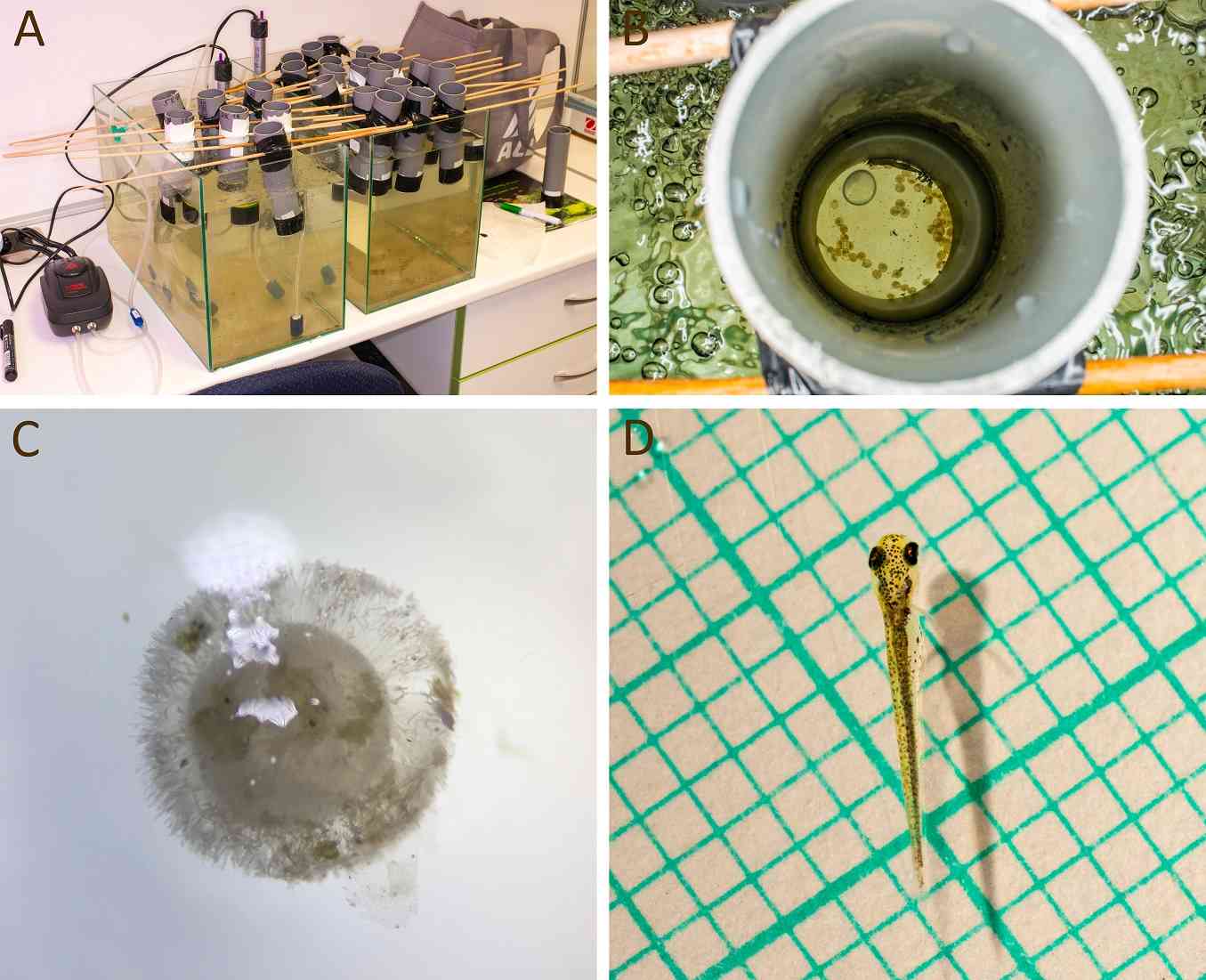Fish have somehow colonized isolated water bodies all over the world without human assistance. It has long been speculated that these colonization events are assisted by waterbirds, transporting fish eggs attached to their feet and feathers, yet empirical support for this is lacking. Recently, it was suggested that endozoochory (i.e., internal transport within the gut) might play a more important role, but only highly resistant diapause eggs of killifish have been found to survive passage through waterbird guts. A controlled feeding experiment was performed, where developing eggs of two cosmopolitan, invasive cyprinids (common carp, Prussian carp) were fed to captive mallards (Anas platyrhynchos). Live embryos of both species were retrieved from fresh feces and survived beyond hatching. This study identifies an overlooked dispersal mechanism in fish, providing evidence for bird-mediated dispersal ability of soft-membraned eggs undergoing active development. Only 0.2% of ingested eggs survived gut passage, yet, given the abundance, diet, and movements of ducks in nature, these results have major implications for biodiversity conservation and invasion dynamics in freshwater ecosystems. informacion[at]ebd.csic.es: Lovas-Kiss et al (2020) Experimental evidence of dispersal of cyprinid eggs inside migratory waterfowl. PNAS doi/10.1073/pnas.2004805117
https://www.pnas.org/content/early/2020/06/17/2004805117








 Las altas temperaturas están provocando que las lagunas y las marismas de Doñana pierdan agua rápidamente
Las altas temperaturas están provocando que las lagunas y las marismas de Doñana pierdan agua rápidamente



